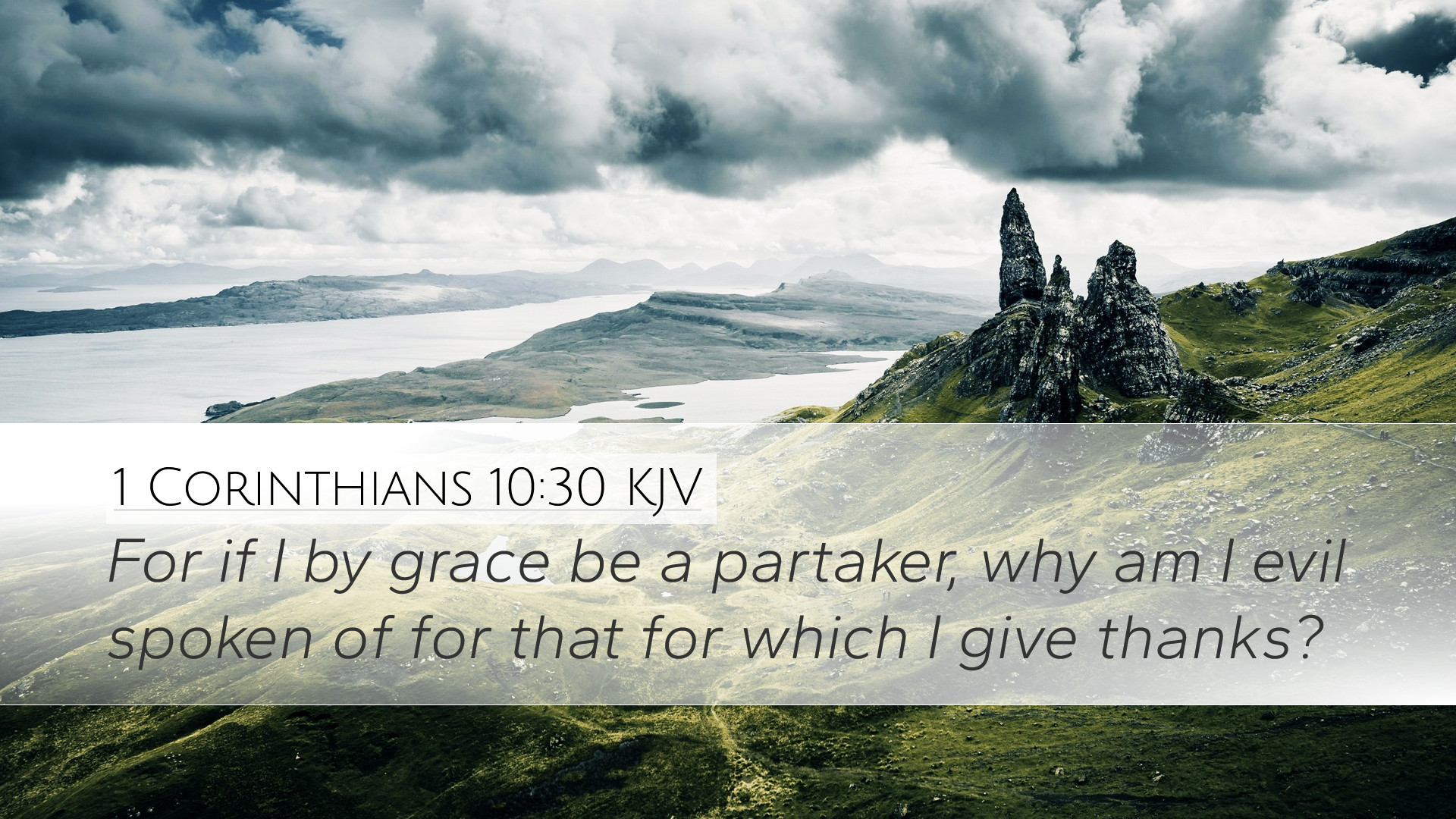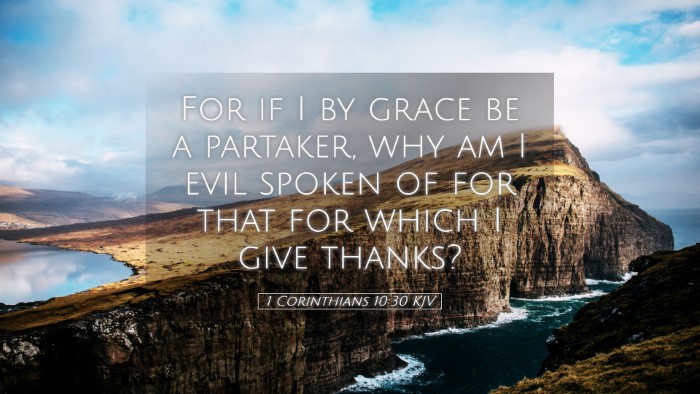Old Testament
Genesis Exodus Leviticus Numbers Deuteronomy Joshua Judges Ruth 1 Samuel 2 Samuel 1 Kings 2 Kings 1 Chronicles 2 Chronicles Ezra Nehemiah Esther Job Psalms Proverbs Ecclesiastes Song of Solomon Isaiah Jeremiah Lamentations Ezekiel Daniel Hosea Joel Amos Obadiah Jonah Micah Nahum Habakkuk Zephaniah Haggai Zechariah MalachiVerse
1 Corinthians 10:1 1 Corinthians 10:2 1 Corinthians 10:3 1 Corinthians 10:4 1 Corinthians 10:5 1 Corinthians 10:6 1 Corinthians 10:7 1 Corinthians 10:8 1 Corinthians 10:9 1 Corinthians 10:10 1 Corinthians 10:11 1 Corinthians 10:12 1 Corinthians 10:13 1 Corinthians 10:14 1 Corinthians 10:15 1 Corinthians 10:16 1 Corinthians 10:17 1 Corinthians 10:18 1 Corinthians 10:19 1 Corinthians 10:20 1 Corinthians 10:21 1 Corinthians 10:22 1 Corinthians 10:23 1 Corinthians 10:24 1 Corinthians 10:25 1 Corinthians 10:26 1 Corinthians 10:27 1 Corinthians 10:28 1 Corinthians 10:29 1 Corinthians 10:30 1 Corinthians 10:31 1 Corinthians 10:32 1 Corinthians 10:33

